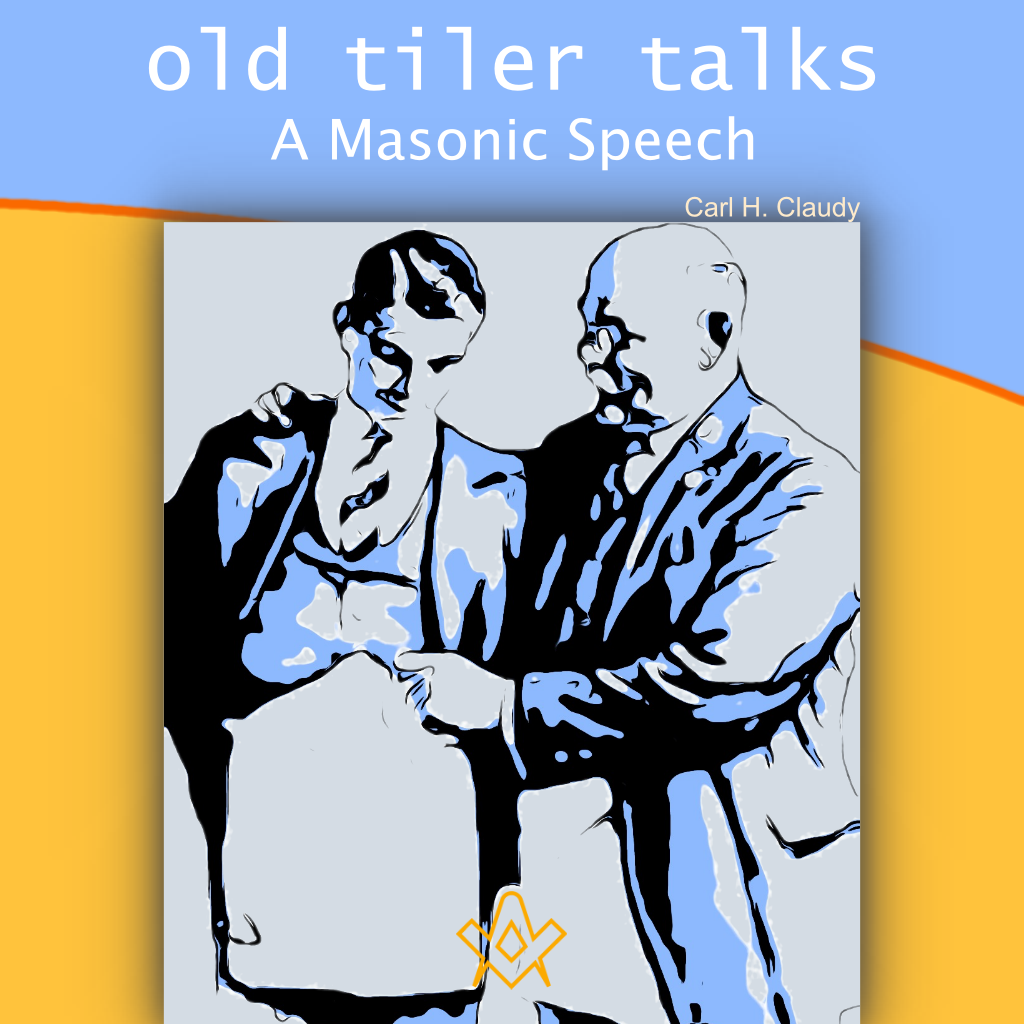The Old Tilers talks first published in 1925, by Carl Claudy, is a series of short anecdotal stories told in the setting of a new member asking an old tiler for his opinion on various masonic topics. These short articles are still very relevant, 100 years on, and hopefully provide some insight to new members today.
“Old Tiler, I am in a jam!” The New Brother smiled, so the Old Tiler did not feel too worried.
“If you don’t help me out, I will be up against it.”
“What’s the trouble now?” The Old Tiler put down his sword to take the cigar the New Brother held out. “Must be something very bad or you wouldn’t start me off with so good a cigar.”
“I have to make a Masonic address.”
“That has been done, and the addresser – yes, even the addressees – lived to tell the tale”, countered the Old Tiler.
“I don’t want just to get by. I want to make ’em remember it. I want to talk about something they haven’t heard before. I’ve listened to many Masonic speeches, and most of them bored me to tears.”
“There are rules for making a good address,” mused the Old Tiler. “The three great rules are, have something to say — say it — sit down. Sometimes they are stated ‘stand up, speak up, shut up.’ Terminal facilities of adequate proportions are needed by railroads and Masonic speakers.”
“That’s just it!” cried the new Brother. “I want to know what to say and how to say it.”
“Meaning you want me to make your speech for you, or to you, before you make it in there?”
“Well, er, no. Not exactly. But can’t you, er, suggest something?”
“I could, but I won’t. I’ll suggest a method of handling your subject, however. Most Masonic speeches suffer from lack of preparation, and of clear thinking about what the speaker wants to say.
“I can’t prepare you. I can’t make you think clearly. But I can tell you the essence of appeal. It is drama.
If you want your hearers to hang on your words, dramatize your subject. If you talk about the Rough and Perfect Ashlars, bring your workman before your hearer; let them hear the strokes of the mallet on the chisel, let them feel the chips of stone as they fall to the ground.
If you talk of the plumb line, make them see the Lord on His wall, watch the Children of Israel gather around, wondering at his putting a plumb ‘in the midst’ of them, that He would not pass by them any more.
When you tell of brotherhood, don’t have it an abstraction, a theory, a hope; make it concrete.
Tell some stories about it. Show one brother helping another; if you don’t know any stories, make them up. But bring the living thought, alive, into the lodge room; men are nothing but children grown up. We all like stories.
“A most entertaining speaker made a talk on Masonic charity. One by one he brought vividly before the lodge a child in a Masonic home, an old blind Mason who was helped to be self-supporting by a lodge, an old mother of a Master Mason who kept her home, thinking it was supported by what her son had left her; he hadn’t left a cent.
The lodge pretended he had, and paid it during her life time. He made us see these people; we lived and grew up with the child; we shut our eyes to see how the blind man felt; from a window we saw the world go by, happy that our sons had kept us from want, as his simple words brought these things before us.
“The speaker spoke quietly, restrained, calmly. He didn’t make the eagle scream; there was almost no applause during his address.
But he made us visualize the sweetness of Masonic charity, as distinct from the cool impersonality of mere giving. He made us proud that we belonged to an organization which worked.
He dramatized charity, and made us see its living human aspects, not its economic importance, or its religious duty angle.
“That’s the answer of ‘how shall I make any Masonic speech interesting,’ my brother.
Make it simple. Make it human. Make it dramatic. There is drama in all the Fraternity; any symbol, any tenet, any part of Masonry has a dramatic angle.
“I do not mean melodramatic. I don’t tell you to put battle, murder, sudden death, in your speech. Melodrama is action without character; drama is action with character.
A railroad accident is melodrama. The mother who saves for a vacation and gives her son the money to buy a set of golf clubs is dramatic.
“Find the character behind the symbols; get the human side of the Craft into its teachings; tell them in terms of people and action, of the things they know only as theories, and your audience won’t walk out on you. Talk without ideas, and you’ll speak to empty benches.”
“I think,” began the New Mason, “I think —”
“That’s all that’s necessary,” smiled the Old Tiler.
“I think you’d better make this speech for me,”
“You think in melodrama,” laughed the Old tiler. “It’s your trouble, not mine.”
Article by: Carl H. Claudy
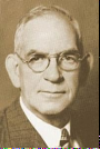
Carl Harry Claudy (1879 – 1957) was an American author, magazine writer, and journalist for the New York Herald.
His association with Freemasonry began in 1908, when, at the age of 29, he was raised a master Mason in lodge Harmony No. 17 in Washington, DC. He served as its master in 1932 and eventually served as Grand Master of Masons in the District of Colombia in 1943.
His Masonic writing career began in earnest when he became associated with the Masonic service Association in 1923, serving as associate editor of its magazine, The master mason, until 1931.
Under his leadership the service Association was brought to a place of predominance through his authorship and distribution of the short talk bulletin which made his name familiar to virtually every lodge in the country.
 Old Tiler Talks - Eyes Lifted High The Old Tiler Talks first published in 1925, by Carl Claudy, is a series of short anecdotal stories told in the setting of a new member asking an old tiler for his opinion on various masonic topics. These short articles are still very relevant, 100 years on, and hopefully provide some insight to new members today. |
 Old Tiler Talks - Masonic Libraries The Old Tilers talks first published in 1925, by Carl Claudy, is a series of short anecdotal stories told in the setting of a new member asking an old tiler for his opinion on various masonic topics. These short articles are still very relevant, 100 years on, and hopefully provide some insight to new members today. |
 Old Tiler Talks - So Many Rascals "Why are there so many rascals in the Fraternity, and why don't we turn them out?" a new member voiced to the old tiler for his opinion. These short articles are still very relevant, 100 years on, and hopefully provide some insight to new members today. |
 Old Tiler Talks - The Greatest Work The Old Tiler asked, "what is the greatest work of Masonry?" The New Brother sat by the guardian of the door and pulled out his cigar case. - Another instalment of wisdom by Carl Claudy, The Greatest Work |
 Old Tiler Talks - Why Men Love Freemasonry The 'Old Tiler Talks' first published in 1925, by Carl Claudy, is a series of short anecdotal stories told in the setting of a new member asking an old Tiler for his opinion on various Masonic topics. These short articles are still very relevant, 100 years on, and hopefully provide some insight to new members today. |
 Old Tiler Talks - Seeking a Little Light The Old Tilers talks first published in 1925, by Carl Claudy, is a series of short anecdotal stories told in the setting of a new member asking an old tiler for his opinion on various masonic topics. These short articles are still very relevant, 100 years on, and hopefully provide some insight to new members today. |
 The new mason laments that practically speaking, Masonry is a failure, and it depresses me … Masonry cannot be a failure, because men fail as Masons. The Old Tilers talk by Carl Claudy |
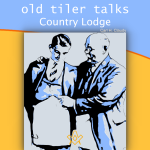 Old Tiler Talks - Country Lodge A lesson in the importance of an open mindset to observe, not to judge, but to learn and accept that we can achieve the desired outcome employing a different process. by Carl Claudy |
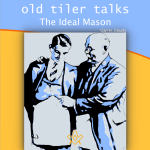 Old Tiler Talks - The Ideal Mason "What's your ideal of Freemasonry?" asked the Younger Mason - A short anecdotal story told in the setting of a new member asking an old tiler for his opinion on various masonic topics by Carl Claudy |
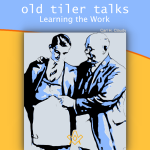 Old Tiler Talks - Learning the Work A short anecdotal story told in the setting of a new member asking an old tiler for his opinion on various masonic topics by Carl Claudy |
 Masonic first appointments and promotions might appear to be inequitable for one point a view, but some times, one point does not show the whole picture. A perfectly articulated story by Claudy, we should not compare one persons abilities with another. |
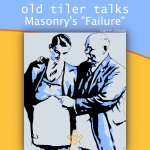 Old Tiler Talks - Masonry's 'Failure' Masonry fails because it doesn’t interest men sufficiently to make them practice what they preach. A perfectly articulated story by Claudy Masonry does not fail men. Men fail Masonry. Masonry has the teachings. |
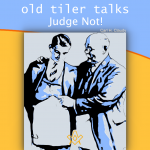 A perfectly articulated story by Claudy reminds us of a lesson from the Second Degree Charge; in the decision of every trespass against our rules, judge with candour, admonish with friendship, and reprehend with mercy. |
 Old Tiler Talks - A Masonic Speech A Masonic Speech - I can tell you the essence of appeal. It is drama. If you want your hearers to hang on your words, dramatize your subject |
 Old Tiler Talks - A Mason's Christmas A Mason's Christmas - Do you believe in Christmas celebrations should be held by the lodge ? Should members be asked to contribute to one and engage in Christmas festivities ? What is the old tilers take on this ? |
 Advertising - We would do more good in the world if we advertised ourselves more… Why ? |
 Uncover the mystery behind one of the oldest and most widespread symbols denoting God. |
 Do you want to discover the originals of the five points of fellowship ? |
 The mystery behind the two great pillars that stood at the porchway entrance of King Solomon Temple |
 Three numbers, what are their masonic significance? Pythagoras has something to say about them |
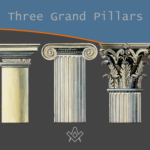 What are the Three Grand Pillars ?, wisdom, strength, and beauty - then later we hear of the Doric, Ionic, and Corinthian columns |
 This emblem contains more real food for thought than any other in the lecture of the Sublime Degree. |
 The Hiramic Legend is the glory of Freemasonry; the search for that which was lost is the glory of life |
 How are the Fellowcraft's five steps connected the five senses of human nature |
 How to explain the principle tents of the craft to a newly made brother |
 What are the lesser lights and where are they placed on our Lodges |
 Like so much else in Freemasonry the Middle Chamber is wholly symbolic |
 In the true sense of the words Freemasonry is not a secret society but a society with secrets. |
 Three Great Lights – the Volume of the Sacred Law, the Square, and the Compasses |
 Entered Apprentice Lambskin Apron; More ancient than the Golden Fleece or Roman Eagle, more honourable than the Star and Garter ... |
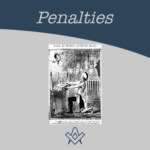 To the initiate, the penalty in his obligation comes with a shock of surprise and sometimes consternation. |
 What is a point within a circle |
masonic knowledge
to be a better citizen of the world
share the square with two brothers

click image to open email app on mobile device



